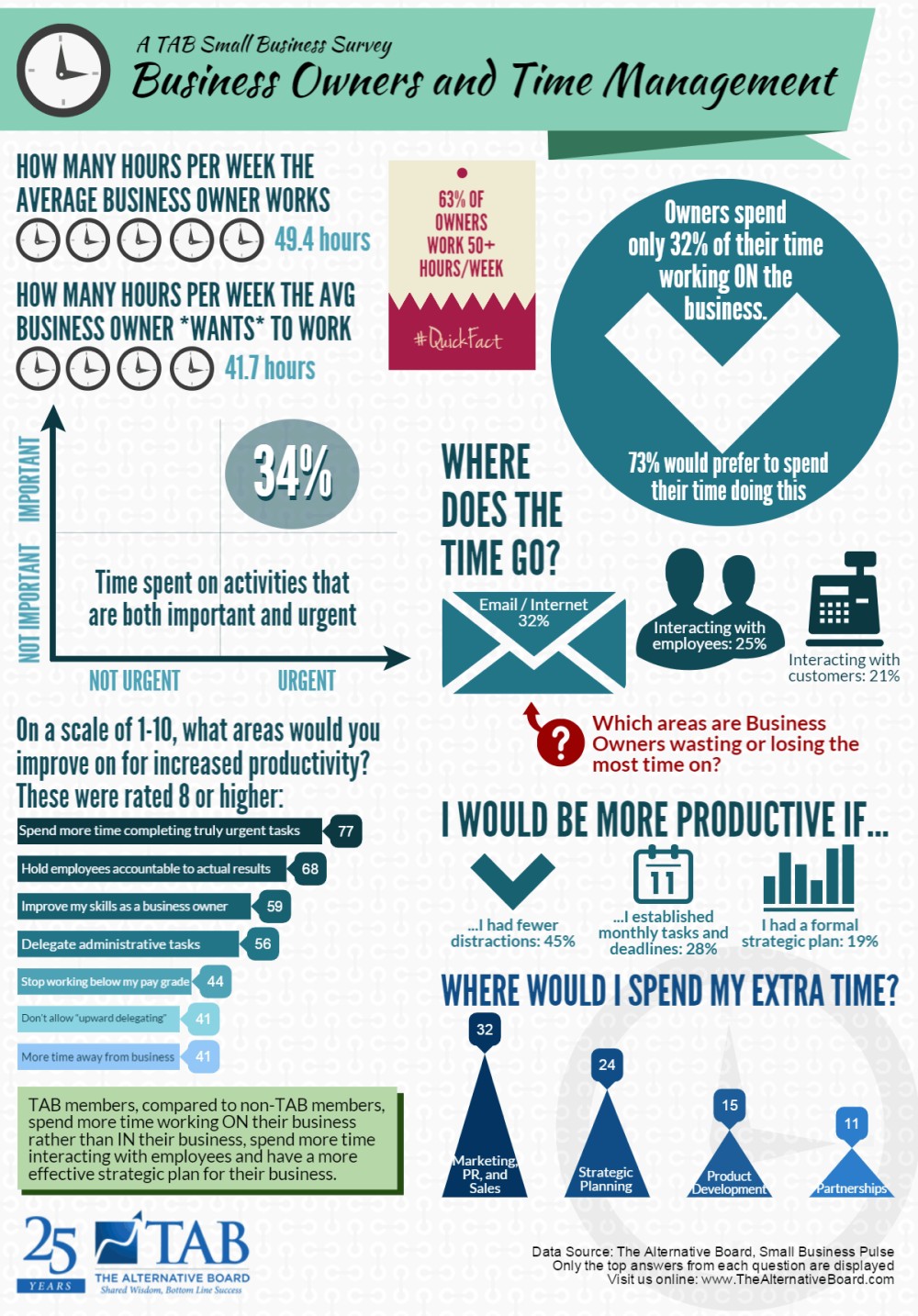
Gene Marks: Be a jerk — and 2 other rules to maximize your work week
By onBusiness Practices | Education | Repair Operations
Editor’s note: From time to time, Repairer Driven News features pieces by prolific national columnist Gene Marks. While despite not being directly related to collision repair, they should still prove valuable to the small-business owners and employees which make up much of the industry.
Boo hoo! Business owners are working 50 hours a week and we only want to be working about 40.
At least, that’s what was concluded in a survey released last month. According to the report by the Alternative Board, a global peer-to-peer advisory franchise, the average entrepreneur spends 68.1 percent of the time working “in” their business (tackling day-to-day tasks, putting out fires), and only 31.9 percent of the time on working “on” their business (i.e. long term goals, strategic planning).
A 41.7-hour week? That’s what we prefer? I don’t know about you, but I’d prefer a zero-hour week. That kind of seems like the goal–sleep late, do a little fishing, keep up with the Kardashians, crush a steak and a few beers. Rinse. Repeat. That sounds like the life.
But of course, that’s not reality. And frankly, a 50-hour week doesn’t sound that unreasonable, particularly if you’re running a company. Fifty hours assumes a 10-hour work day. That makes sense, considering that most of us usually arrive at work by 8 a.m. and leave around 6 p.m.. And I’m not even including the time we spend on the weekends or at night doing a little paperwork or email at home.
(Editor’s note: Speaking of email, 33 percent of businesses owners surveyed called email the biggest time strain. For what it’s worth, the Alternative Board suggests only reading them once and never opening one unless you’re prepared to act on it.)
The bottom line is that if you’re going to run a business you’re not going to work less than 40 hours a week. You will work 50 hours a week. The key is making those 50 hours as productive (i.e. profitable) as possible. And doing that isn’t too tough either. All you need to do is follow these three simple rules.
1. Work when your brain functions best
Studies have shown that most people think better in the morning. That’s not the case for all.
Reagan was known for taking naps in the afternoon. Churchill did his best work at three in the morning while drinking scotch. The employees at Zenefits seemed to be at their best doing naughty things in the stairwells of their office building. You know when you’re most productive. I am one of those morning people. I’m more alert and on my toes early on. I use the mornings to write, think, plan and strategize. And I get up early and get the stuff that requires the most thinking done then.
If you’re an early-morning person, then go to bed a little earlier and get up a little earlier and do your thinking work then. If you’re a late-night person, then reverse the plan — and go ahead, add in a little scotch.
One of the many great benefits to running your own business is that you have a little more control over your life than the typical corporate worker bee. You have a little more flexibility to choose when you work and when you don’t. So exercise that option and choose your best time of day to get the hardest stuff done.

2. Ask not when — but who
When my company was smaller and new projects would come up, the first thought in my mind would be “Oh God, when am I going to get this done?”
And then a stroke of management genius occurred to me.
No, I didn’t get smarter. I just got more selfish. I started to see the value in having others do work for me.
And I started to make more money too because I figured out (duh) that 10 people working for me can create more revenues then just one person. So after a while, when new work came in, my thoughts turned from “when” to “who will do this work for me?”
Call it what you will–delegation, management, etc. I just call it self-preservation. It’s easy to fill up your day with thousands of tasks and call yourself busy. But you’re not making money this way. And you’re not being smart. (Editor’s note: Administrative tasks are the second-largest time suck, according to 24 percent of the surveyed businesses.)
Smart, successful people get other people to do stuff for them. How does Trump find the time to run for President, Jack Dorsey run multiple companies and Jimmy Fallon party until the wee hours? Don’t they have responsible jobs?
Of course they do, but they have people who they trust to do stuff for them, like manage construction projects, overspend billions at Twitter and even take them to the hospital when they fall down drunk.
3. Be a jerk
A few weeks ago, my wife and I were at a party, and a very nice woman who teaches at a community college was hinting around about me helping out with some of her classes.
Did I mention that she is a very nice woman? I didn’t take the bait. Of course she needed help. And I knew she couldn’t pay.
My wife said later, “Why didn’t you offer to help?” And I said: “Because I’m a jerk. No apologies.”
But it goes beyond that. I’m a jerk when it comes to my time. There are lots of ways to spend your time and lots of good things to do with your time. I meet plenty of business owners who are nice people that can’t say no. And then they find themselves doing things at nights and on weekends instead of tending to their business, or their families or to their own personal fitness and health. They’re not doing themselves or the people closest to them any favors.
The community college lady is very nice. But my business and family are more important. I’m not going to be able to say yes to everything and please everyone. I’m going to have to be a jerk sometimes. And by being a jerk, I’m in more control of my time and focused on more important activities. Your time is your asset. Hoarding that asset is a good thing.
Sure we’d like to be working less hours, but the reality is that if you’re going to run a company, you’re going to spend 50 hours a week doing it. Your success won’t be in reducing that time, just using it as productively as possible.
This column originally appeared in Inc.
Gene Marks is a columnist, author, and small business owner. http://genemarks.com. Gene writes every day on business, politics and public policy for the Washington Post and weekly for Forbes, Inc. Magazine, Entrepreneur and the Huffington Post. Gene has written 5 books on business management, specifically geared towards small and medium-sized companies. His most recent is “The Manufacturer’s Book of Lists.” Nationally, Gene appears on Fox News, MSNBC and CNBC discussing matters affecting the business community. Through his keynotes and breakout sessions, Gene helps business owners, executives and managers understand the political, economic and technological trends that will affect their companies so they can make profitable decisions. Gene owns and operates the Marks Group PC, a highly successful ten-person firm that provides technology and consulting services to small and medium-sized businesses. Prior to starting the Marks Group PC, Gene, a Certified Public Accountant, spent nine years in the entrepreneurial services arm of the international consulting firm KPMG in Philadelphia, where he was a senior manager.
More information:
“Be A Jerk…and 2 Other Rules To Maximize Your Work Week”
Gene Marks in Inc., March 2, 2016
“New Survey Reveals How Business Owners Can Better Manage Their Time”
The Alternative Board via PRWeb, March 16, 2016
TAB Small Business Pulse: Time Management
The Alternative Board
Images:
An Alternative Board survey found business owners working about 50 hours a week. (thewet/iStock/Thinkstock)
The Alternative Board found that the average small business owner worked 49.4 hours and only wanted to work 41.7, according to December survey results released in February. (Provided by the Alternative Board)
Columnist Gene Marks. (Provided by Gene Marks)

